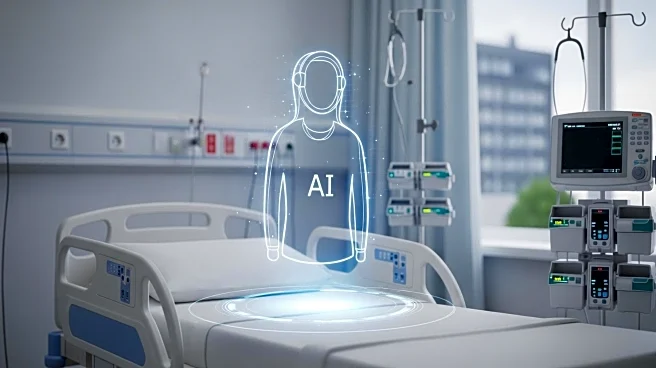What's Happening?
MCG Health, part of the Hearst Health network, has partnered with Avo, a clinician-created AI platform, to launch an AI assistant aimed at optimizing hospital length of stay (LOS). This initiative integrates MCG's evidence-based recovery milestones directly into electronic health record (EHR) workflows, providing hospitalists and case managers with real-time insights into patient readiness for discharge. The tool is designed to eliminate communication delays and improve patient outcomes by offering intelligent discharge recommendations and auto-drafted notes. The AI assistant, known as Discharge Assist Informed by MCG, is currently being piloted at three sites, including Englewood Health in New Jersey and Ozarks Healthcare, a MEDITECH customer.
Why It's Important?
The optimization of hospital length of stay is crucial for reducing healthcare costs and improving patient safety. Unnecessary hospital days can lead to increased risks of hospital-acquired infections, bed shortages, and resource drain, with costs averaging $3,000 per patient per day. By leveraging AI to streamline discharge processes, hospitals can achieve significant cost savings and enhance care quality. The integration of evidence-based guidelines into EHR workflows ensures that discharge decisions are both safe and efficient, potentially reducing readmission rates and improving patient satisfaction.
What's Next?
The pilot programs at Englewood Health, a large California-based Academic Medical Center, and Ozarks Healthcare will provide valuable insights into the effectiveness of the AI assistant. As the tool is integrated with major EHR systems like Epic, Meditech, and athenahealth, its adoption could expand across more hospitals, leading to widespread improvements in discharge processes. The success of these pilots may encourage other healthcare institutions to adopt similar AI-driven solutions, further transforming hospital operations and patient care.
Beyond the Headlines
The introduction of AI in hospital discharge processes highlights a broader trend towards automation and data-driven decision-making in healthcare. This shift not only promises to enhance operational efficiency but also raises questions about the role of human judgment in clinical settings. As AI tools become more prevalent, healthcare professionals may need to adapt to new workflows and rely on technology to complement their expertise, potentially reshaping the healthcare landscape.








